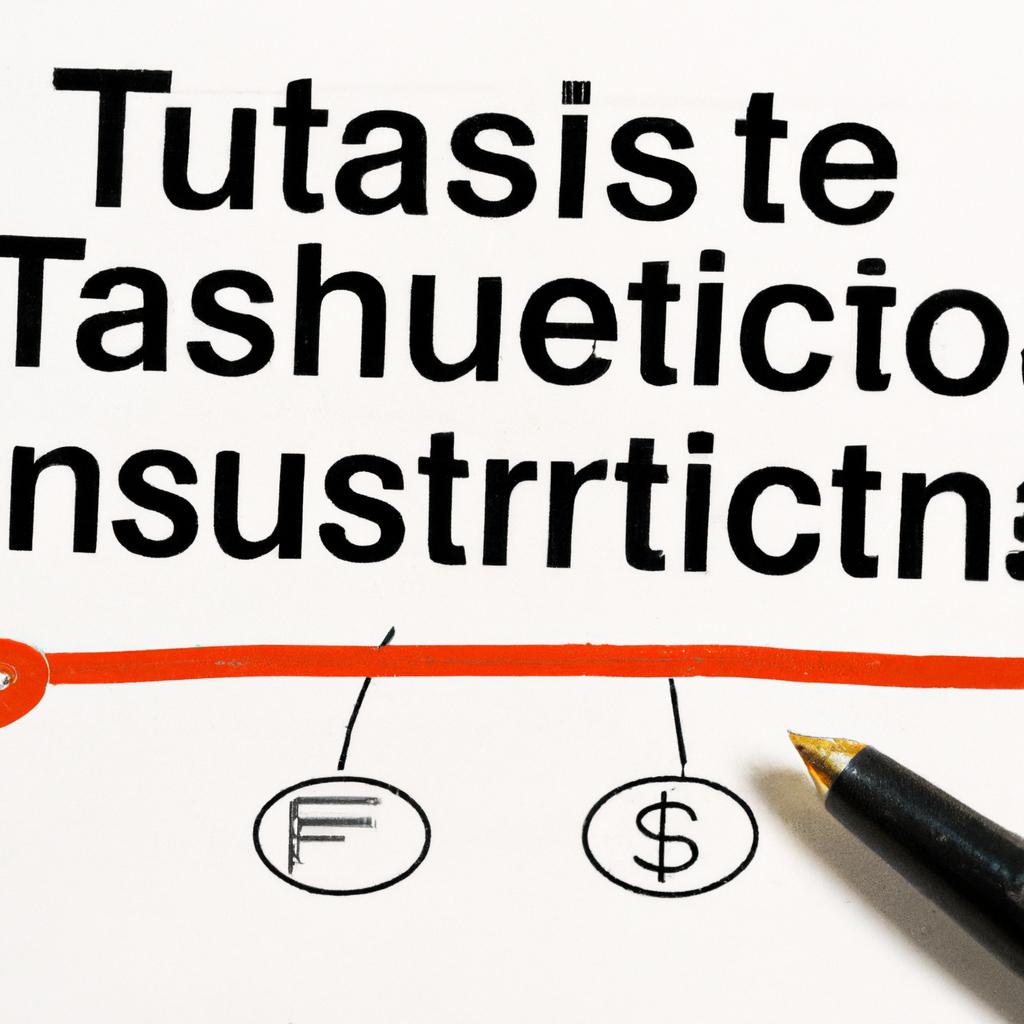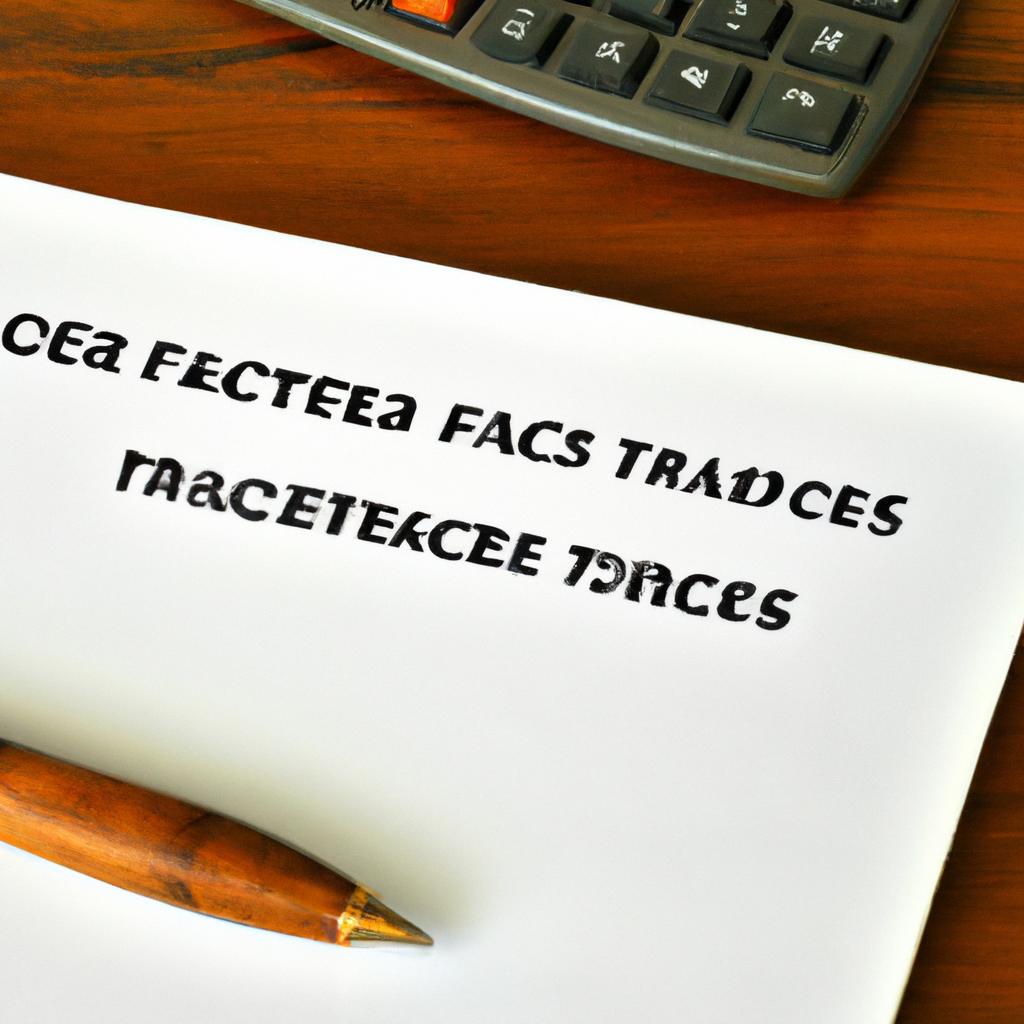As seasoned practitioners of estate planning and trusts law at Morgan Legal Group in bustling New York City, we understand the intricate complexities that come with managing trusts. One crucial aspect that often arises is calculating trustee fees. In this article, we will delve into the various factors to consider when determining trustee fees, ensuring that you are equipped with the knowledge needed to navigate this essential aspect of trust administration. Join us as we unravel the intricacies of trustee compensation and arm you with the tools to confidently fulfill your fiduciary duties.
Determining the Basis for Trustee Compensation
In , it is important to consider the responsibilities and duties that the trustee undertakes. Trustee fees are typically calculated based on a percentage of the total assets in the trust. This percentage can vary depending on the size of the trust, the complexity of the assets, and the level of responsibility required of the trustee.
Another common method for calculating trustee fees is to use an hourly rate, especially if the trustee is providing additional services beyond basic trust administration. It is important for trustees to keep detailed records of the time spent on trust-related activities in order to accurately calculate their fees. Ultimately, the goal is to ensure that trustee compensation is fair and reflects the work put into managing the trust.

Factors to Consider When Calculating Trustee Fees
When calculating trustee fees, it is essential to take into account several factors to ensure fair compensation for the services provided. One key consideration is the complexity of the trust and the responsibilities involved. Trusts that require more time and expertise to manage may warrant higher fees.
Additionally, the value of the assets held in the trust can also impact the trustee fees. Managing a trust with substantial assets may require more work and carry higher responsibilities, which could justify higher compensation. It is important to carefully evaluate these factors and discuss them with all parties involved to establish a fair and reasonable fee structure.

Best Practices for Setting Fair and Reasonable Trustee Compensation
Consider the following factors when calculating trustee fees:
- Size and complexity of the trust
- Market rates for trustee services in your area
- Time spent on trust administration
- Experience and expertise of the trustee
When setting trustee compensation, it’s important to:
- Ensure that the fees are reasonable and fair
- Document the reasons for the fees charged
- Review and adjust fees regularly
- Consult with legal and financial advisors for guidance

Ensuring Compliance with Legal Standards for Trustee Remuneration
Trustee remuneration is an essential aspect of trust administration that must adhere to legal standards to ensure compliance and transparency. Calculating trustee fees requires careful consideration of various factors to determine a fair and reasonable compensation for the trustee’s services. It is crucial to follow proper procedures and guidelines to avoid any conflicts of interest or potential legal challenges.
When calculating trustee fees, trustees should consider the following factors:
- Scope of services: The complexity and extent of the trustee’s responsibilities
- Market rates: Comparable fees charged by professional trustees in the same geographic area
- Time and effort: The amount of time and effort expended by the trustee in fulfilling their duties
- Benefit to the trust: The overall benefit and value provided to the trust and its beneficiaries
Q&A
Q: What are trustee fees?
A: Trustee fees are compensation paid to the individual or entity responsible for managing and administering a trust.
Q: How are trustee fees calculated?
A: Trustee fees can be calculated based on a percentage of the value of the trust assets, by the hour, or using a flat fee structure.
Q: What factors should be considered when determining trustee fees?
A: Factors to consider when determining trustee fees include the complexity of the trust, the amount of time and effort required to manage it, and the responsibilities of the trustee.
Q: Can trustees waive their fees?
A: Yes, trustees have the option to waive their fees if they choose to do so.
Q: Are trustee fees taxable?
A: Yes, trustee fees are considered taxable income and must be reported on the trustee’s tax return.
Q: How can beneficiaries ensure that trustee fees are reasonable?
A: Beneficiaries can review the trust document for guidelines on trustee compensation, compare fees with industry standards, and consult with a financial advisor or attorney for guidance on reasonable trustee fees.
Final Thoughts
In conclusion, understanding how to calculate trustee fees is an important aspect of managing a trust effectively. By following the guidelines outlined in this article, you can ensure that both trustees and beneficiaries are fairly compensated for their roles in maintaining the trust. Remember, transparency and communication are key when determining trustee fees, so be sure to discuss any calculations with all involved parties. With careful consideration and attention to detail, you can navigate the complexities of trustee fees with confidence and integrity. Thank you for reading, and best of luck in your trustee responsibilities.
 How to Calculate Trustee Fees – A Comprehensive Guide
How to Calculate Trustee Fees – A Comprehensive Guide
As a trustee, you have the important responsibility of managing a trust and its assets. Trustees are typically compensated for their time and effort in overseeing a trust, and this compensation is known as trustee fees. However, calculating trustee fees can be a complex process that requires an understanding of the trust’s assets, the trustee’s duties, and state law. In this guide, we will break down the steps to calculate trustee fees and provide practical tips for both trustees and beneficiaries.
Understanding Trustee Fees
First, it is essential to understand what trustee fees are and why they are important. Trustee fees are the compensation paid to a trustee for their services in managing a trust. Trustees are typically responsible for a wide range of duties, including investing trust assets, distributing trust income and principal to beneficiaries, and keeping accurate records of all trust transactions. These duties often require significant time and effort on the part of the trustee, making trustee fees an important consideration.
The amount of trustee fees can vary significantly depending on factors such as the size of the trust, the complexity of the assets, and the duties required of the trustee. In some cases, trustee fees may be a flat fee, but they are more commonly calculated as a percentage of the trust’s assets. State laws may also dictate a minimum or maximum amount for trustee fees, so it is vital to review relevant laws before calculating trustee fees.
Calculating Trustee Fees
Now that we have a basic understanding of trustee fees, let’s look at the steps involved in calculating them.
1. Review the Trust Document
The first step in calculating trustee fees is to review the trust document carefully. The trust document will outline the specific duties and responsibilities of the trustee, including the compensation they are entitled to. Some trusts may include a specific amount or formula for trustee fees, while others may leave it open for negotiation. The trust document should also specify whether trustee fees are to be paid from the trust’s assets or by the beneficiaries.
2. Determine the Asset Value
Next, the trustee must determine the value of the trust assets. This includes all property, investments, and other assets held in the trust. It is essential to document the value of these assets accurately, as it will form the basis for calculating trustee fees. In cases where the trust holds complex or hard-to-value assets, it may be necessary to seek the assistance of a professional appraiser.
3. Consider Time and Effort
Managing a trust can be a time-consuming and complex task, and trustees are entitled to compensation for their time and effort. When calculating fees, it is essential to consider the amount of time spent on trust-related tasks, such as managing investments, preparing tax returns, and communicating with beneficiaries. Trustees should keep detailed records of the time they spend on these tasks to support their fee calculation.
4. Consult State Laws
As mentioned earlier, some states have specific laws regulating trustee fees. It is essential to consult the relevant state laws when calculating trustee fees to ensure compliance. In some cases, state laws may dictate a maximum amount for trustee fees or provide guidelines for calculating a reasonable fee based on the value of trust assets.
5. Negotiate with Beneficiaries (optional)
If the trust document does not specify trustee fees or if the beneficiaries are not satisfied with the proposed compensation, the trustee may need to negotiate with the beneficiaries. This negotiation can involve discussing the trustee’s duties, the complexity of the assets, and the time and effort required to manage the trust. Trustees should approach this negotiation with transparency and be open to finding a fair and mutually agreeable solution.
Practical Tips
Here are some practical tips for both trustees and beneficiaries when it comes to trustee fees:
– Trustees should keep detailed records of all their activities related to the trust, including time spent and expenses incurred.
– Beneficiaries should review the trust document carefully to understand their rights and responsibilities.
– Trustees should regularly communicate with beneficiaries and keep them updated on the trust’s progress.
– If disputes or disagreements arise regarding trustee fees, it is best to seek the advice of a legal professional to find a resolution.
Benefits of Calculating Trustee Fees Properly
Properly calculating and paying trustee fees benefits both the trustee and the beneficiaries. For trustees, it ensures that their time and effort are compensated fairly, and their responsibilities are recognized and appreciated. For beneficiaries, it provides transparency and accountability, as well as peace of mind knowing that the trust is being managed effectively.
Case Study: Calculating Trustee Fees in a Real-Life Scenario
To illustrate the process of calculating trustee fees in a real-life scenario, let’s consider the case of a trust with a total asset value of $500,000. The trust document outlines the trustee’s compensation as 1% of the total asset value, with a minimum fee of $5,000 per year. The trustee’s duties involve managing investments, preparing tax returns, and distributing trust income and principal to the beneficiaries. Based on these factors, the trustee calculates their fees as follows:
1% of $500,000 = $5,000 (Minimum fee)
+ $2,500 (for time spent on trust-related tasks)
+ $2,000 (for expenses incurred)
Total trustee fees = $9,500 per year
In this scenario, the trustee’s fees are within the minimum and maximum amounts specified by state law, providing a fair and reasonable compensation for their time and effort.
To Conclude
As we have seen, calculating trustee fees can be a complex process that requires a careful understanding of the trust document, state laws, and the trustee’s duties. It is crucial to approach this process with transparency and open communication between trustees and beneficiaries to ensure a fair and mutually agreeable compensation. By following the steps and tips outlined in this guide, trustees and beneficiaries can work together to manage trusts effectively and ensure that the trustee’s efforts are justly compensated.






